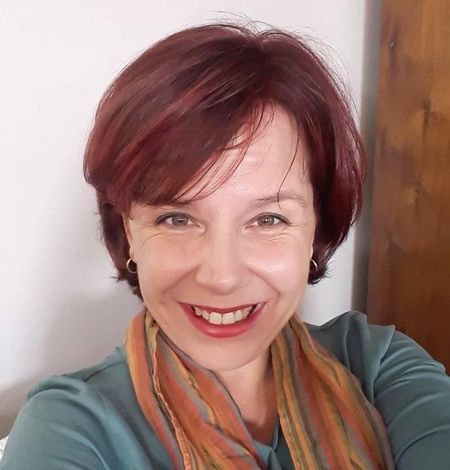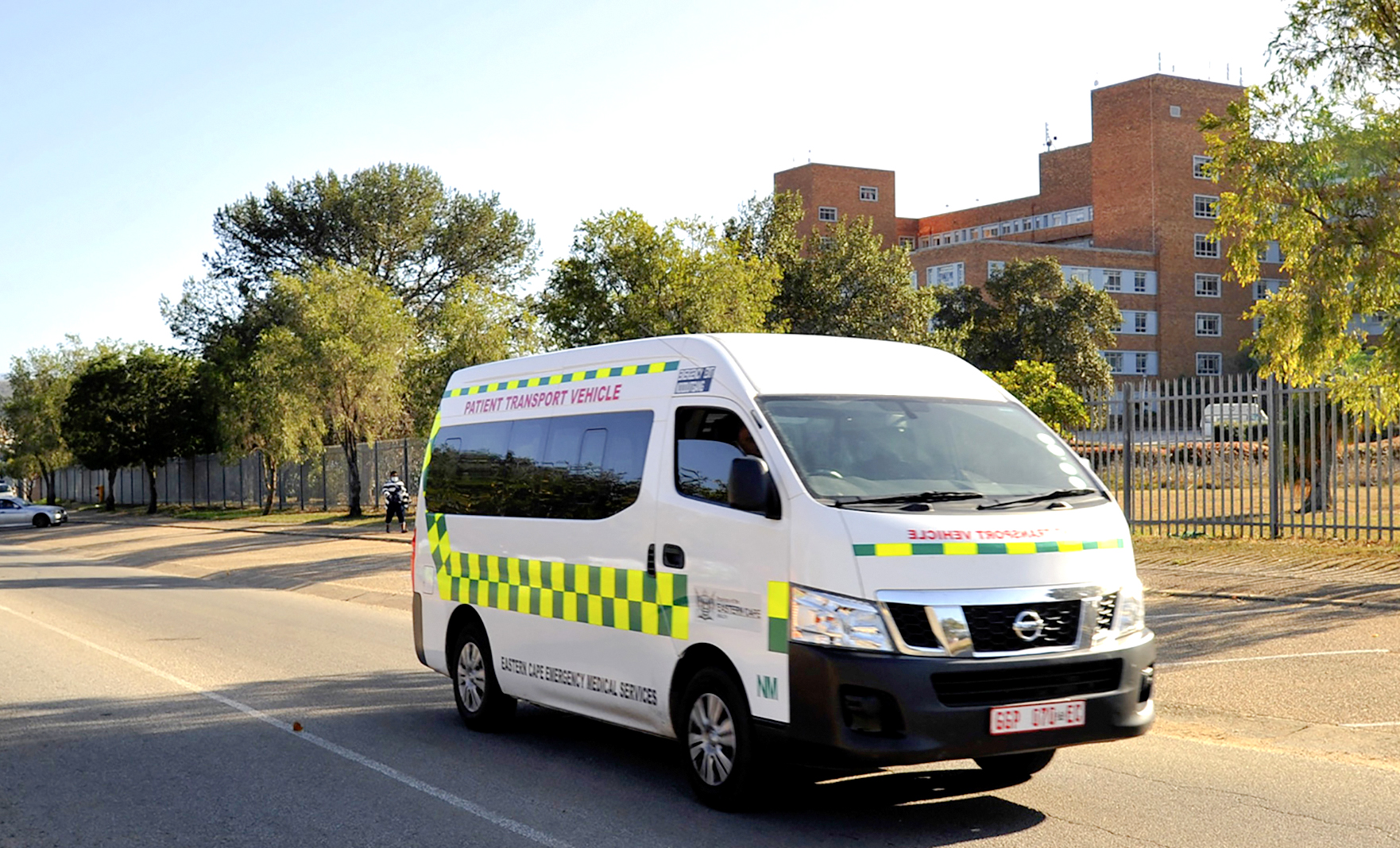Communities in the Karoo are up in arms over the planned closure of the Graaff-Reinet Emergency Medical Services call centre. They say merging the facility with the one in Nelson Mandela Bay, 250km away, will put their lives at risk.
A document explaining the reason for the move states: “The Department of Health has embarked on the implementation of an Electronic Call Taking and Dispatch System to enhance operational efficiency and service delivery in Emergency Medical Services (EMS). This technology-driven initiative represents a significant step forward in modernising our emergency response infrastructure.”
According to a schedule provided in a signed letter by the department, the ambulance call centre in Graaff-Reinet was scheduled for closure on 1 July 2025, but residents confirmed that it was still open. A message sent to control room staff said the exact date of closure was still to be confirmed.
The announcement of the closure was made just over a month ago.
“The Electronic Call Taking Centre based at Dora Nginza Hospital in Nelson Mandela Bay has been fully established and is now operational. In order to optimise the benefits of this system, the Department will be expanding its reach to additional districts,” the document continued.
“[The] Sarah Baartman District, due to its proximity and current reliance on outdated, paper-based call-taking methods – which have proven unreliable, particularly due to issues such as cable theft – has been identified as the next priority area for integration.
“The Department will begin by phasing in the control rooms located in Humansdorp, Makhanda (Grahamstown) and Graaff-Reinet. Once integrated, emergency calls originating from these areas will be routed to the centralised Call Taking Centre at Dora Nginza Hospital. Ambulance dispatch will continue to occur from existing EMS stations within the Sarah Baartman District, coordinated via the Push-to-Talk radio system to ensure seamless communication and rapid response times.
“This initiative is part of the Department’s broader commitment to leveraging technology to strengthen emergency medical response capabilities across the province.”
A letter sent to staff members signed by the head of Emergency Medical Services, AK Munilall, said the development was initiated as part of the “Presidential drive on the Fourth Industrial Revolution (4IR).
“This forms part of a broader objective to leverage technology for improved service delivery, operational efficiency and patient response times.
“The system has been fully implemented at the Gqeberha EMS Station and has shown promising outcomes in terms of efficiency, real-time data utilisation, and call handling capacity.”
According to the plan sent to EMS personnel, the closure and integration of call centres will happen as follows: Graaff-Reinet, from July 2025; Makhanda, from mid-July and Humansdorp, from the end of July.
Twenty call centre communications staff will be transferred to Nelson Mandela Bay.
In their motivation presented to staff members, the department said the benefits of the system were that centralised coordination allowed for uniform, real-time tracking and resource allocation across districts; improved call efficiency and data capture reduced delays in emergency responses; automated logging and analytics enabled better oversight and strategic planning.
Formal consultation sessions with unions began on 29 May, and it was envisaged that staff would be transferred from Tuesday, 1 July.
Outrage and fear
Residents in several Karoo towns, however, are outraged at this development and have complained that no one was consulted.
They are worried that the call centre will not have enough Afrikaans-speaking staff to help them.
A community leader from Aberdeen, who asked not to be named, said that the current personnel had a good knowledge of the area and where, for instance, there were farms with the same name in the same district.
“Or even here by us there are two streets with the same name, but they are not the same street. Now I can just phone 112 and the person answering the phone speaks to me in Afrikaans, and they also know the story with these two streets,” he said.
He said the 10777 number did not work. “We have two direct numbers here for the people at the Graaff-Reinet call centre, and these numbers always work, otherwise we will phone the hospital and the nurses will find out for us. We also have all the drivers’ numbers ourselves. We don’t want this new system.”
“Even our family in Uitenhage [Kariega] complains that if you want to talk to that call centre in Nelson Mandela Bay, you must be English or Xhosa,” one resident said. “Those who struggle with English also struggle with getting an ambulance. They don’t speak Afrikaans over there.
“And here we know the ambulances well, so if we can’t find someone … we phone … the hospital and they can help us or they can tell us where the ambulance is,” he said.
Community leader Ricardo Smith from Nieu-Bethesda said they already waited for an ambulance for up to two hours “if one is available” and they were afraid that the new plan would cause further significant delays.
“We are afraid that people will die with this new system if it delays the ambulances,” he said.
He said there had been no consultation with the community. “When you talk about this to people, they are so angry that they use swear words,” he said.
Petition
He said they had drawn up a petition to show their disagreement with the new plan and had been gathering signatures. Mandy Deysel from Jansenville agreed. “It doesn’t matter which political party people belong to, everyone is signing the petition because they are very unhappy about this new development,” she said.
She said ambulances in Jansenville were already dispatched through the Graaff-Reinet call centre and could take a long time to respond, so they feared that if instructions had to come from Nelson Mandela Bay, it would take much longer.
Dr Eileen Carter from the South African Human Rights Commission (SAHRC) said the commission was bringing an interdict application against the Eastern Cape Department of Health based on its failure to comply with an investigative report by the SAHRC, published in 2015.
The papers in this lawsuit were filed on 16 April 2025. The SAHRC instituted civil proceedings against the department concerning the lack of emergency medical services in the Xhorha Mouth area as well as the department’s failure to comply with the SAHRC's 2015 EMS Report.
Extensive recommendations were made at the time to ensure the improvement of the service.
According to the Notice of Motion, the matter was scheduled to be heard on 20 May 2025 in the Eastern Cape Division of the High Court in Bhisho. MEC for Health Ntandokazi Capa indicated that she would oppose the SAHRC’s case. The case was, however, removed from the roll as the MEC had not yet filed her opposing papers, despite being given 15 days to file them.
Carter said the SAHRC was drafting further submissions to the court.
According to this answer by Minister of Health Aaron Motsoaledi, in May, 25% of ambulances in the Eastern Cape are non-operational. But even counting the full fleet of vehicles, there are 0.5 ambulances available for every 10,000 residents. The national standard is 1:10,000.
The Eastern Cape Department of Health’s communications director Siyanda Manana has failed to respond to a request for comment. DM





 The Eastern Cape Department of Health has announced the sudden closure of ambulance call centres in the Karoo and the centralisation of the service in Nelson Mandela Bay. (Photo: Mike Holmes)
The Eastern Cape Department of Health has announced the sudden closure of ambulance call centres in the Karoo and the centralisation of the service in Nelson Mandela Bay. (Photo: Mike Holmes)